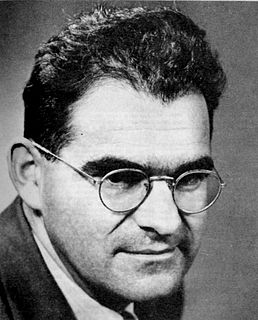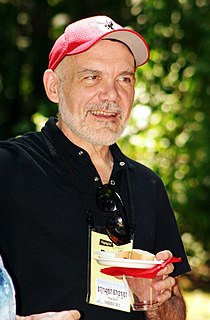A Quote by Orhan Pamuk
I strongly believe that the art of the novel works best when the writer identifies with whoever he or she is writing about. Novels in the end are based on the human capacity, compassion, and I can show more compassion to my characters if I write in a first person singular.
Related Quotes
Novels are political not because writers carry party cards -- some do, I do not -- but because good fiction is about identifying with and understanding people who are not necessarily like us. By nature all good novels are political because identifying with the other is political. At the heart of the 'art of the novel' lies the human capacity to see the world through others' eyes. Compassion is the greatest strength of the novelist.
But novels are never about what they are about; that is, there is always deeper, or more general, significance. The author may not be aware of this till she is pretty far along with it. A novel's whole pattern is rarely apparent at the outset of writing, or even at the end; that is when the writer finds out what a novel is about, and the job becomes one of understanding and deepening or sharpening what is already written. That is finding the theme.
I've just finished a series of Olivia Manning novels. She's best known for two trilogies: Balkan Trilogy and Levant Trilogy. The six novels are continuous and contain the same set of characters. They are based on Manning's experiences in Eastern Europe and Egypt during the Second World War. Each novel is a wonderful picture of the peculiar British expatriate culture and what was happening during the war. She's one of those brilliant women who write very well about domestic relationships. All the books are slim, and it's easy to gallop through them.
Hatred, jealousy and excessive attachment cause suffering and agitation. I feel compassion can help us overcome these disturbances and let us return to a calm state of mind. Compassion is not just being kind to your friend. That involves attachment because it is based on expectation. Compassion is when you do something good without any expectations - based on realizing that "the other person is also just like me".
I want to view my own efforts to write a novel as a function of my own artistic aspirations rather than a good career move. And I need to learn how to commit to characters for a longer time, to confront the limits of my own capacities for attention and compassion. That's what a writing career does, in the best instance: it allows you to keep after what you can't do.
When asked how she knows when her writing is where she wants it to be: "I know when it's the best I can do. It may not be the best there is. Another writer may do it much better. But I know when it's the best I can do. I know that one of the great arts that the writer develops is the art of saying, 'No. No, I'm finished. Bye.' And leaving it alone. I will not write it into the ground. I will not write the life out of it. I won't do that."
I've been thinking a lot about why it was so important to me to do The Idiot as a novel, and not a memoir. One reason is the great love of novels that I keep droning on about. I've always loved reading novels. I've wanted to write novels since I was little. I started my first novel when I was seven.I don't have the same connection to memoir or nonfiction or essays. Writing nonfiction makes me feel a little bit as if I'm producing a product I don't consume - it's a really alienating feeling.
Of course the more you love the sinner the more you hate and make war on the sin, just as the more you love the person, the more you hate and kill the cancer cells that are killing the person. Compassion for cancer cells does not come from compassion for persons; it comes precisely from lack of compassion for persons.
One of my heroes is Mr. Sidney Poitier. In his autobiography, "The Measure of a Man," he talks about the difference between being a great person and being a great actor. I'm happiest when I'm acting, and I've dedicated my life to it. Still, as much as I love acting, at the end of the day, I want to be remembered as a great person, first, and as a great actor, second. I believe that acting is a talent while being a great person encompasses so much more: being a good father, a good husband and the ability to show compassion for others.
I do think some games are works of art, although their medium is visual rather than verbal. Both games and novels allow the reader/player to become a protagonist in the theater of the imagination. Both build worlds. In my opinion, the big difference between game and novel is in narrative structure. Communal role-playing games are open-plan without an end. A novel - at least the kind I write - has a closed structure with a beginning, a middle, and an end. I like that closed structure, and I feel I can say more with it.






































